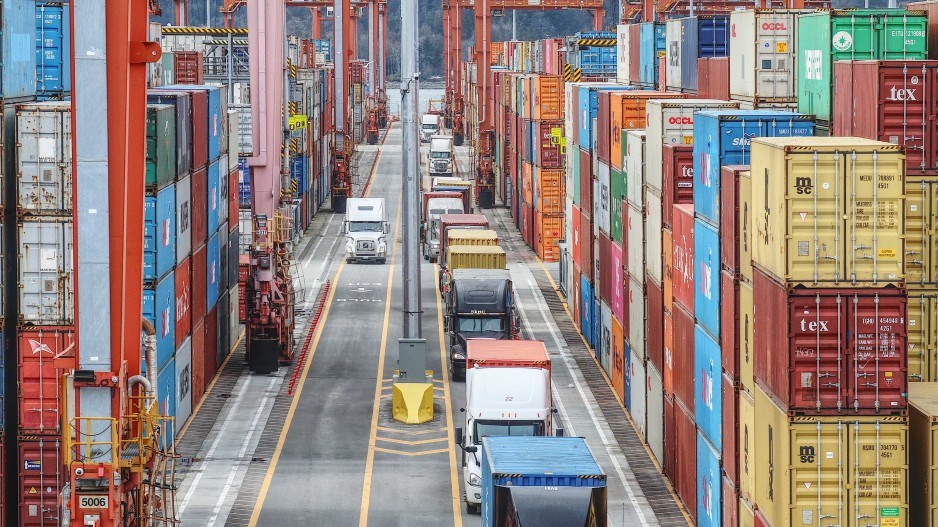They are still talking, and any company or business that depends on the flow of imports and exports through B.C.’s Asia-Pacific Gateway will be hoping that those talks result in a new long-term contract between the province’s maritime employers and unionized dockworkers.
The to B.C.’s goods-moving reliability if those talks break down would be massive.
So, word from the BC Maritime Employers Association (BCMEA) today (June 27) that BCMEA and International Longshore and Warehouse Union Canada (ILWU) bargaining committees continued to meet last week and through the weekend will provide some optimistic light on the horizon for the province.
Both sides in the negotiations are also anticipated to continue bargaining next week with the help of Federal Mediation and Conciliation Service (FMCS) officials.
Pressure to reach an agreement on a new collective agreement increased after the Pacific Maritime Association (PMA) and the 22,000 unionized dockworkers employed at 29 ports along the U.S. West Coast arrived at tentative agreement for a new six-year deal earlier this month. The two sides had been without a contract since July 2022.
ILWU (Canada) has been without a contract since the end of March.
Negotiations for the previous two contracts between the BCMEA and the ILWU were long drawn-out affairs. It took 18 months to negotiate the five-year deal that expired at the end of March; it took two years to negotiate the eight-year contract before that.
This time around, the ILWU filed an FMCS notice of dispute after only a handful of meetings with the BCMEA. That set in motion an FMCS conciliation process that ended with the imposition of a cooling-off period. That expired on June 20 and opened the door to both sides in the negotiations e.
in the negotiation process this time around because it did not want to leave the country waiting a year and a half for a contract resolution.
“Get it done soon,” he said. “Get it done quick and get the worry and wait over so that everybody knows Canada is in business.”
The BCMEA also appears to want a resolution sooner than later.
Its June 27 update acknowledged that “stability at our West Coast ports is paramount to Canada’s economic and social well-being.”
The BCMEA added that it “remains committed to good faith negotiations with the intent of reaching a fair and equitable deal at the bargaining table that recognizes the efforts of the workforce, while keeping our ports stable and goods flowing for Canadians.”
Other factors applying pressure to negotiate a new deal between the two sides along B.C.’s waterfront include a slowing economy that is reducing overall shipping demand on the transpacific and other major trade routes and the continued migration of container cargo away from West Coast North American ports to competing ports in Mexico and along the Gulf and Eastern Seaboard.
Thus far there have been no disruptions to cargo or passenger operations at B.C. ports during the current round of negotiations.
twitter.com/timothyrenshaw





